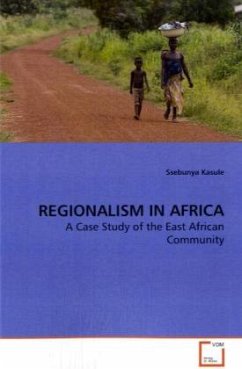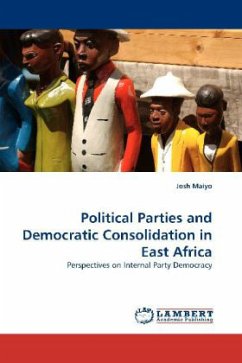The number of regional organizations in Africa has
increased substantially over the past thirty years
even though their success has been dismal. In
addition to poor performance, traditional theories
of economics cooperation are no longer relevant in
explaining the existence of these organizations
because African leaders have placed politics above
economics. Using the East African Community as a
case study, this book examines the creation,
maintenance and performance of regional economic
organizations by analyzing the goals and activities
of African leaders. This book reveals that
regional organizations have been successful whenever
the objective at hand does not threaten the goals of
the Heads of State of member countires. However,
this book also shows that member countries can
benefit from regional economic organizations if
they focus on the production and export
of food crops. This book sheds light on the role of
politics in regional economic organizations in
Africa, and should be useful to students of African
politics, foreign aid donors, multi-national
corporations, investors, and business-people in
African countries
increased substantially over the past thirty years
even though their success has been dismal. In
addition to poor performance, traditional theories
of economics cooperation are no longer relevant in
explaining the existence of these organizations
because African leaders have placed politics above
economics. Using the East African Community as a
case study, this book examines the creation,
maintenance and performance of regional economic
organizations by analyzing the goals and activities
of African leaders. This book reveals that
regional organizations have been successful whenever
the objective at hand does not threaten the goals of
the Heads of State of member countires. However,
this book also shows that member countries can
benefit from regional economic organizations if
they focus on the production and export
of food crops. This book sheds light on the role of
politics in regional economic organizations in
Africa, and should be useful to students of African
politics, foreign aid donors, multi-national
corporations, investors, and business-people in
African countries








